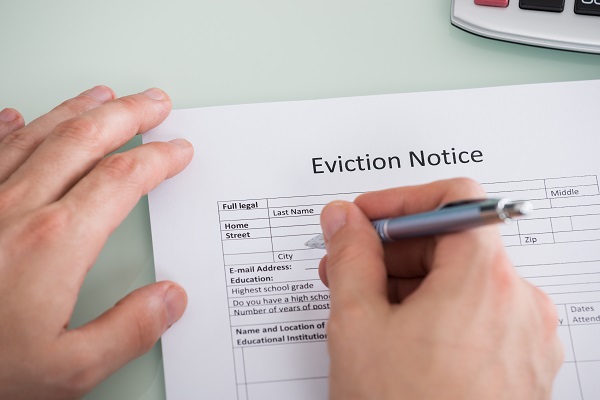
In most states, including California, a landlord must follow specific statutory procedures to evict a tenant. These requirements include providing notice upon discovering a violation of the lease and preparing the appropriate filings in the court of the county in which the property is located. In response to an eviction suit by a landlord, a tenant can invoke a number of defenses to contest the eviction. These defenses assert that the eviction was either procedurally or substantively unlawful and may result in either a delayed or terminated eviction lawsuit.
Improper process. The tenant can dispute the eviction based on the claim that the landlord did not follow the correct eviction procedures. Although, in most cases, the landlord will still be able to pursue the eviction once the error is corrected or addressed, the claim can temporarily halt the eviction. Examples of procedures that the tenant might invoke are lack of notice, insufficient notice, or failure to file an eviction through the court mandated systems.
Self-help procedures. The eviction process outlined in the California Code (Code) is the only method for legally evicting a tenant. In some states, landlords are permitted to engage in self-help remedies, such as changing the locks on the unit’s door or shutting the utilities, to forcibly remove the tenant from the premises. In California, these types of procedures are not authorized. If the landlord nevertheless engages in them, the tenant can sue for damages and avoid eviction.
Payment of rent. The Code requires the landlord to provide three day’s notice to a tenant to pay the rent or vacate the unit before filing a lawsuit for eviction. If the tenant opts to pay rent, the landlord is required to accept the funds and refrain from filing a lawsuit. This rule gives the tenant a final opportunity to correct the default before legal measures are undertaken.
Failure to maintain property. A tenant is permitted to withhold rent under specified circumstances. Specifically, the landlord is required to properly maintain the unit according to state standards. If the landlord does not adhere to the minimum standards of habitability, the tenant is permitted to withhold rent. If the landlord evicts the tenant for withholding the rent, the tenant can assert that the landlord failed to meet these requirements.
Contact Shane Coons at 949-333-0900 or visit his website at www.ShaneCoonsLaw.com to find out more about his practice.
